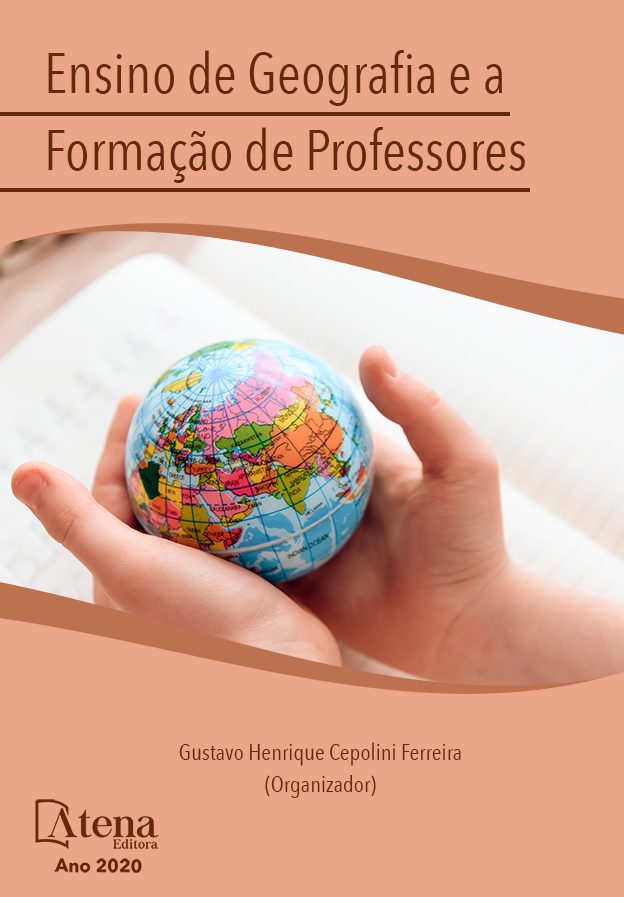
VETORES DA QUESTÃO MORADIA NA EDUCAÇÃO DE JOVENS E ADULTOS (EJA): UM ENFOQUE INTERDISCIPLINAR
Este artigo aborda as estratégias utilizadas por educadores do ensino fumdamental e médio para contribuir com a reinserção de jovens, adultos e idosos nos processos formais de escolarização, por meio da apropriação dos objetos do conhecimento da Educação de Jovens e Adultos (EJA) como ferramenta essencial para a reconstrução das atividades que fomentam oportunidades, autonomia e emancipação. Para tanto, a Secretaria de Estado da Educação, do Esporte e da Cultura (SEDUC), por meio do Departamento de Educação (DED) e do Serviço de Educação para Jovens e Adultos (SEJA) realizou uma formação continuada para educadores que atuam em escolas de EJA, ministrada por técnicos da instituição. O objetivo da ação foi fortalecer a implementação do processo ensino e aprendizagem através de ações interdisciplinares e contextualizadas, utilizando-se da Pedagogia de Projetos disáticos, enquanto referencial teórico-metodológico importante para a integração dos saberes curriculares ao cabedal cultural dos educadores e educandos da EJA para promoção do conhecimento. Nessa perspectiva, o trabalho foi realizado por meio da p esquisa de campo analisando os projetos didáticos desenvolvidos nas escolas da DRE’3 e 8. Sendo a amostragem educdores e educandos da EJA. A partir dessa formação continuada constatou-se que, técnicos, professores, educandos e educandos da EJA, suscitaram o desenvolvimento de projetos pedagógicos sobre a temática moradia e demonstraram a necessidade da integração entre teoria e prática pedagógica para realização de abordagens contextualizadas e interdisciplinares. Esses docentes perceberam que para a EJA propiciar autonomia e emancipação aos educandos existe a necessidade da participação deles em formações continuadas como estímulo a reflexão das práticas pedagógicas que quando desenvolvidas por meio de projetos temáticos interdisciplinares conectando as vivências desses suajeitos aos saberes curriculares flexibilizados, a práxis educativa acontece.
VETORES DA QUESTÃO MORADIA NA EDUCAÇÃO DE JOVENS E ADULTOS (EJA): UM ENFOQUE INTERDISCIPLINAR
-
DOI: 10.22533/at.ed.70520040913
-
Palavras-chave: Formação continuada. EJA. Pedagogia de Projetos. Ensino da Geografia. Moradia.
-
Keywords: Continuing education. EJA. Project Pedagogy. Geography teaching. Home.
-
Abstract:
This article addresses the strategies used by smokers and high school educators to contribute to the reinsertion of youth, adults and the elderly in formal schooling processes, through the appropriation of the objects of knowledge of Youth and Adult Education (EJA) as an essential tool for the reconstruction of activities that foster opportunities, autonomy and emancipation. To this end, the Secretary of State for Education, Sport and Culture (SEDUC), through the Department of Education (DED) and the Education Service for Youth and Adults (SEJA), carried out continuous training for educators working in schools of EJA, taught by technicians of the institution. The objective of the action was to strengthen the implementation of the teaching and learning process through interdisciplinary and contextualized actions, using the pedagogy of dysmatic projects, as an important theoretical and methodological framework for the integration of curricular knowledge into the cultural background of EJA educators and students. to promote knowledge. In this perspective, the work was carried out through field research analyzing the didactic projects developed in the schools of DRE'3 and 8. Being the sample of educators and students of EJA. From this continuing education, it was found that EJA technicians, teachers, students and students, led to the development of pedagogical projects on the theme of housing and demonstrated the need for integration between theory and pedagogical practice to carry out contextualized and interdisciplinary approaches. These teachers realized that for EJA to provide autonomy and emancipation to students there is a need for their participation in continuing education as a stimulus for reflection on pedagogical practices that when developed through interdisciplinary thematic projects connecting the experiences of these subjects to flexible curricular knowledge, praxis educational happens.
-
Número de páginas: 16
- Juliana Souto Santos


